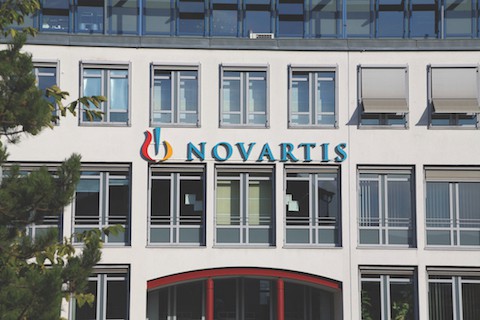
Novartis has shared positive results from a late-stage study of its radioligand therapy Lutathera (lutetium Lu 177 dotatate) as a first-line treatment for newly-diagnosed neuroendocrine tumours (NETs).
The ongoing NETTER-2 trial has been evaluating Lutathera plus long-acting release (LAR) octreotide versus high-dose octreotide LAR alone in newly-diagnosed patients with grade two or three advanced gastroenteropancreatic neuroendocrine tumours (GEP-NETs) that are somatostatin receptor (SSTR)-positive.
The incidence of NETs, a type of cancer that originates in neuroendocrine cells throughout the body, has increased over the past several decades.
Despite being considered slow-growing malignancies, some NETS are associated with rapid progression and poor prognosis, and in many cases, diagnosis is delayed until patients are at an advanced stage.
According to the results from NETTER-2, which were presented at this year’s American Society of Clinical Oncology Gastrointestinal Cancers Symposium, the Lutathera combination significantly extended progression-free survival to 22.8 months versus 8.5 months in the high-dose octreotide LAR cohort.
No new or unexpected safety findings were observed in the study, Novartis said, adding that the trial will continue to assess secondary endpoints, including overall survival and long-term safety.
Jeff Legos, global head of oncology development at Novartis, said: “This is the first positive phase 3 trial of a radioligand therapy in the first-line setting, and the overall efficacy and safety results are among the most clinically relevant observed to date in this kind of advanced cancer, addressing a significant unmet need for patients with newly-diagnosed advanced GEP-NETs.
“The positive results are a significant advancement and further reaffirm our strategy to research and develop radioligand therapies in earlier lines of treatment or stages of disease to improve outcomes for patients.”
Lutathera is already approved in the US to treat adult patients with SSTR-positive GEP-NETs and in Europe for adults with unresectable or metastatic, progressive, grade one or two SSTR-positive GEP-NETs.
Lead study author, Dr Simron Singh, from the University of Toronto, said the results from NETTER-2 are “practice-changing” and “offer new first-line treatment data for patients who have a significant unmet need”.
“These findings should instil confidence among physicians in using Lutathera as a first-line treatment for patients with this life-threatening type of cancer,” he said.




